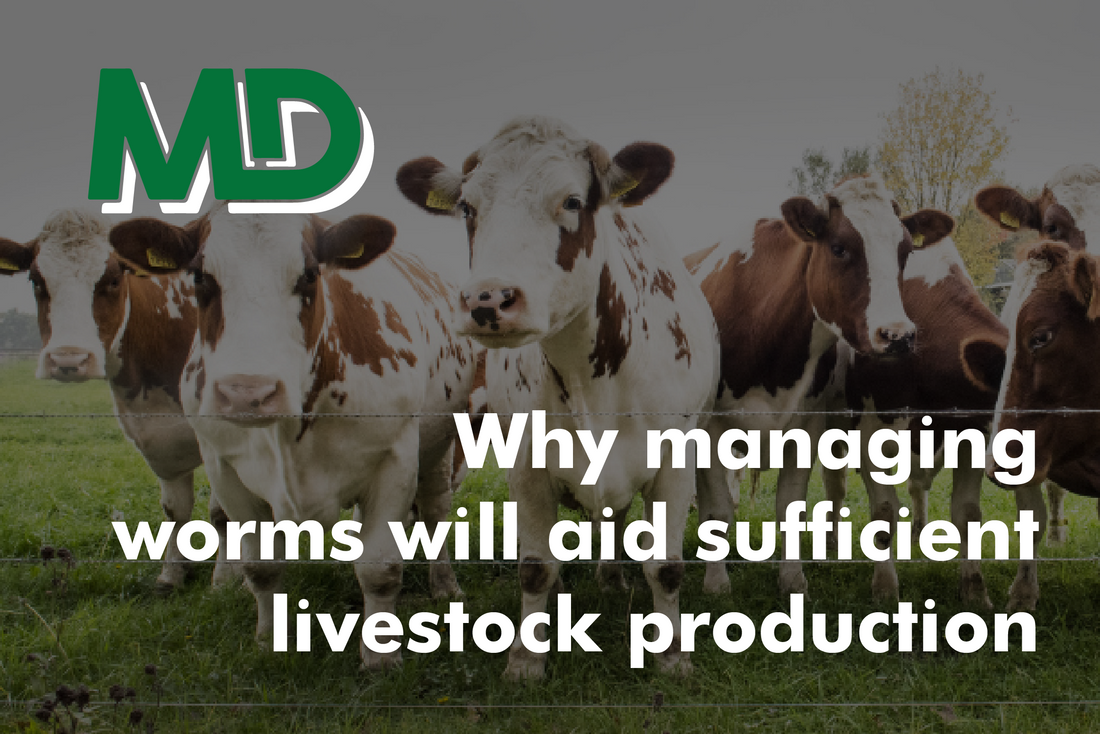
Share
Efficiency on UK livestock farms is at the forefront of many farmers minds and while this can encompass all areas of farm management and production, there are some easy wins to help make your farm more efficient.
A recent study1 has shown that worms are costing UK livestock producers £270 million in lost production and treatment expenditure every year.
Worms can affect animal performance by reducing:
- Feed intake
- Growth rates
- Carcase weight
- Fertility
- Milk yield
How can farmers control worms and make their farm more efficient?
The starting point for every farmer should be to understand what the worm risk is on their farm through use of :
- Monitoring weights
- Faecal egg count testing (for worms) or coproantigen testing (for fluke)
- Post-mortems
- Data from abattoirs
Once this is established then a plan can be put in place with your animal health advisor (RAMA) to help manage the risk. Managing the worm burden on farm may be only one part of improving farm efficiency, but it is a vital part. Not managing worm burdens can have negative consequences on cattle growth resulting in further input costs, longer finishing times, poorer meat quality and higher emissions – not to mention the impact on cow welfare. Speak to your local animal health advisor (RAMA) for further information on the right treatment strategy for your farm.
The Benefits of Season-Long Worm Control in Cattle
Planning worm control prior to turnout is vital to prevent cattle from becoming infected at grass, which could lead to subsequent production losses.
It’s important to understand when to treat cattle and with what product. Ask yourself:
- What is the likely worm burden?
- When are cattle being turned out?
- Are they being grazed away from the farm?
- What are the handling facilities like?
- Do you want the convenience of treating and handling once?
There are certain situations on farm where protecting your cattle with a long-acting wormer is beneficial:
- Where there is a potential threat from worms and the animals are being grazed away from the farm with no handling facilities
- Where stock is not being checked regularly – e.g. on hill land
- Where pasture is known to be high risk for parasites, but there are no alternative grazing areas
- Where you are treating strategically to reduce pasture contamination
- Where you want the convenience of only having to treat and handle once within the season
Benefits of protecting your cattle with a long-acting wormer:
- Offering peace of mind stock are protected.
- Less stress for animals; they are only handled once.
- 100% Compliance: Ensuring animals are treated correctly without the risk of missing followup doses.
Responsible use of Medicines
It is important you discuss products and treatment plans with your animal health advisor (RAMA) and choose the product most suitable for your herd and the parasite challenge on your farm.
To help prevent resistance it is important to use the product in the correct way and at the correct time.
1 Charlier et al. (2020) Initial assessment of the economic burden of major parasitic helminth infections to the ruminant livestock industry in Europe, Preventive Veterinary Medicine, https://doi.org/10.1016/j.prevetmed.2020.105103
ZERMEX® 100 mg/ml LA Solution for Injection for Cattle (10% LA) contains moxidectin, POM-VPS. May be prescribed by any Registered Qualified Person (RQP - a veterinarian, a pharmacist or an appropriately qualified RAMA).
